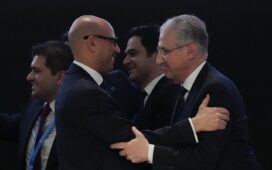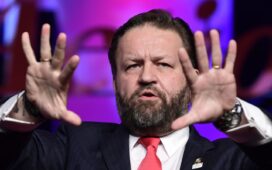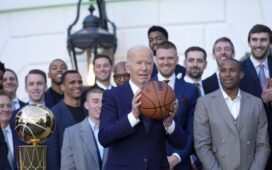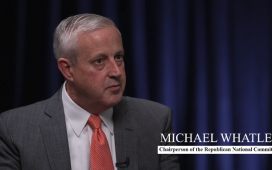Lurking in the collective consciousness in Paris was a humiliating scandal that rocked Renault in 2011 and nearly took down Ghosn just seven years earlier. Renault had accused, falsely it turned out, and then fired three senior managers for supposedly selling corporate secrets about electric cars to foreign interests. Patrick Pelata, Renault’s then COO and a revered product development guru long seen as CEO material, was forced to resign over the affair to shield his longtime friend and boss, Carlos Ghosn, from the political blowback. As a former schoolmate of Ghosn’s at École Polytechnique, Pelata was one of only two people at Renault said to be on a first-name basis with Ghosn. (To everyone else at Renault and Nissan—even his top executives—he was always “Mr. Ghosn.”) Was the takedown in Japan the beginning of another such misstep, only on a much larger scale?
Talk of a corporate conspiracy went viral almost as soon as Ghosn was arrested.
The initial charges—that he had hidden more than $80 million in postponed compensation—were dismissed by skeptics as a concocted ploy by Nissan, maybe in league with the Japanese government, to remove him from office. Why? Just nine months earlier, Renault said it would renew Ghosn’s contract to lead the automaker for another four years, with one caveat. His mandate was to make Renault’s alliance with Nissan “irreversible.” Those were fighting words to some at Nissan.
What’s more, the Florange Crisis from 2015, in which the French government secured double voting rights in Renault over the protests of Nissan, was still fresh in the memories of many in Yokohama. That showdown stoked long-standing suspicion in Japan about French intentions. Now, the conspiracists imagined a paranoid Japan consumed with the fear that the French government and Ghosn were positioning for an end game that might once and for all eradicate Nissan’s independence and make it a subsidiary.
According to Nissan’s and Saikawa’s official narrative, Alliance relations and integration plans had nothing to do with Ghosn’s arrest. To Nissan, it was a clear-cut case of misconduct. Saikawa, in a sit-down with Japan’s Shukan Bunshun magazine months after the arrest, blasted his former mentor. “I wonder if Mr. Ghosn has ever had any love or sense of attachment to Nissan as a company. I wonder if Nissan was merely a tool for him and his family to enjoy a luxurious lifestyle,” Saikawa said. “I seriously question if Mr. Ghosn has had any respect for Japanese people and Japanese society at all. If he had respect for Japan, he couldn’t have committed such misconduct.”
But to the conspiracy minded, it seemed far more plausible that Nissan and Japanese authorities colluded to keep Nissan independent the best way they knew how—by taking out the only man holding the two companies together. It was only after the French government ordered Ghosn to bind them irreversibly that a key Nissan insider—as Nissan openly admits—first shared misgivings about Ghosn’s alleged misdeeds. In this scenario, Ghosn wasn’t guilty of any crime at all. He was collateral damage in a collision of nationalist instincts and the forces of globalism. To Ghosn, this conspiracy storyline was a pillar of his defense.
“The only way you can explain it is that they wanted to not only eliminate me but destroy my legacy and completely reshuffle the power relationship between the three companies,” Ghosn said in an interview for this book from Lebanon after fleeing Japan. “The Japanese came very quickly to the realization that, unfortunately, the biggest influence that Renault or the French would have on Nissan would be through me. So they said, ‘Okay, if we get rid of him, it’s over.’ And that’s exactly what happened.”
In April 2019, he outlined it personally in a video communiqué. Released in lieu of the live press conference he hoped to host before a largely sympathetic audience at the Foreign Correspondents’ Club of Japan. By the time the video was released, Ghosn had been thrown back in jail for a second time. His lawyers wisely prepared the seven-and-a-half-minute message in anticipation that he might be picked up and blocked from speaking.
“This is not about greed. This is not about dictatorship. This is about a plot. This is about conspiracy. This is about backstabbing,” Ghosn said in the clip. “There was first a fear that the next step of the Alliance, in terms of convergence and in terms of moving toward a merger, would, in a certain way, threaten some people or eventually threaten the autonomy of Nissan.”







